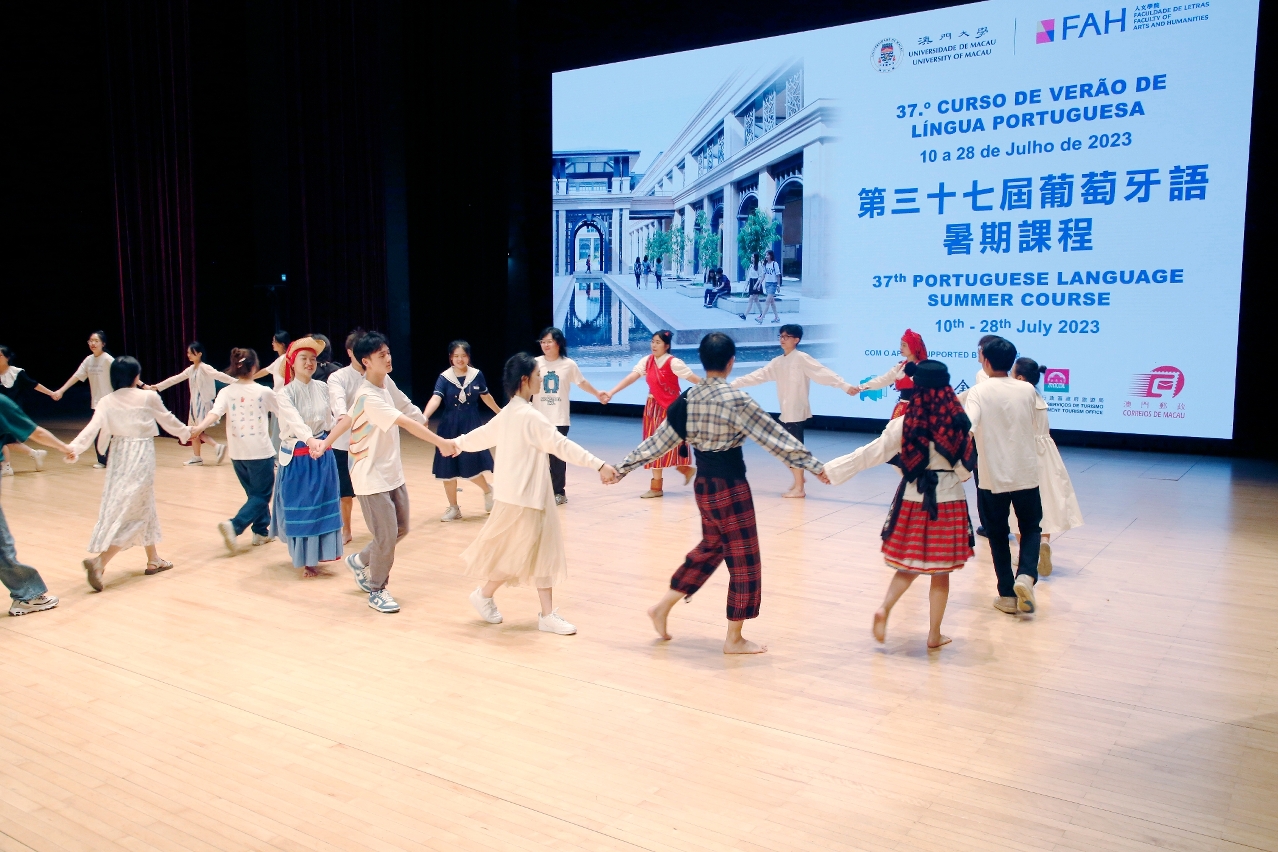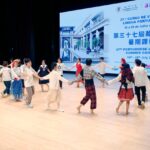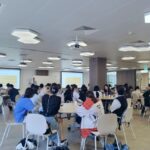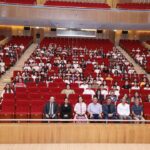 A cultural performance
A cultural performance
The Department of Portuguese of the University of Macau (UM) Faculty of Arts and Humanities recently held a closing ceremony for the 37th Portuguese Language Summer Course. During the ceremony, students showcased their learning outcomes over the past three weeks through dance performances and poetry recitations. Certificates were also presented to those who had fulfilled the course requirement.
During the three-week language course and cultural activities, 280 students from mainland China, South Korea, the United Kingdom, and Macao had a fulfilling time at UM. According to Zhou Jun, a participant in the course, the summer course allowed students to experience university life at the UM campus and the unique culture of Macao. They also improved their listening, speaking, reading, writing, and translation skills in Portuguese through a variety of courses, and discovered the charm of the culture and art of Portuguese-speaking countries through different activities.
In addition to the language course, this year’s Portuguese Language Summer Course included seminars on translation and interpretation, history, and contemporary Portugal. Students also participated in workshops on Portuguese folk dance, capoeira, poetry and music, and oenology. The course materials and videos were made available on an online platform to facilitate students’ independent learning after class. Moreover, a series of activities such as concerts, dance performances, and visits to famous sightseeing spots in Macao were arranged for the participants.
The closing ceremony also included a farewell dinner to celebrate the conclusion of the summer programme. This year’s Portuguese Language Summer Course was supported by the Macao Foundation, Macao Government Tourism Office, the Macao Post and Telecommunications Bureau, Casa de Portugal em Macau, and Axé Capoeira Macau.




